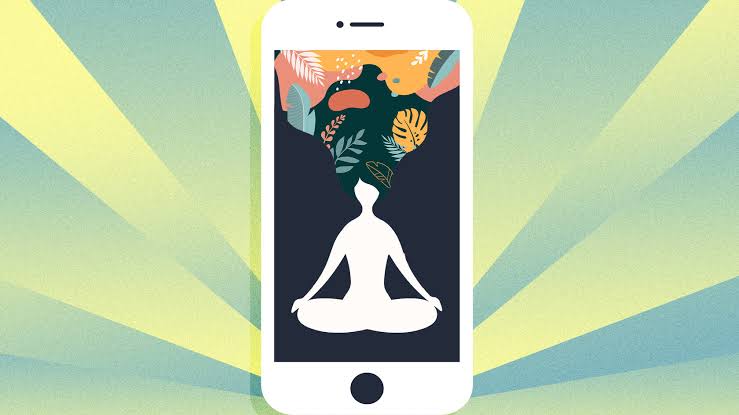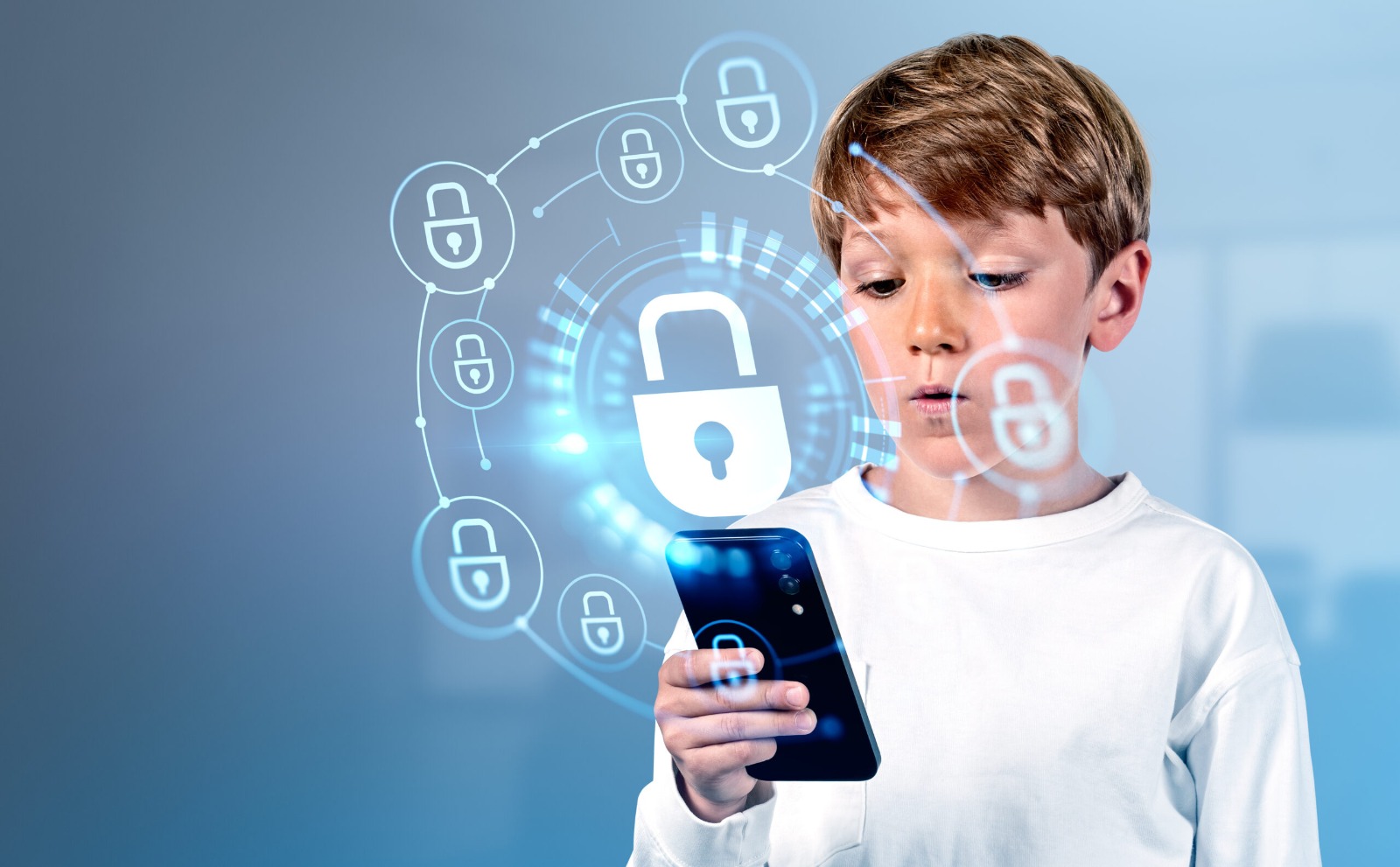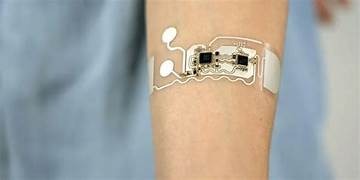
Mental Health Apps: Do They Really Help?
Mental health apps have emerged as accessible tools to support emotional wellness, offering features like mood tracking, meditation, and cognitive exercises. While not replacements for therapy, they provide daily support and stress relief, especially for mild mental health concerns. However, effectiveness varies by app, and data privacy remains a concern. When used wisely and with professional guidance, these apps can be valuable companions on the journey toward better mental well-being.
✨ Raghav Jain

Introduction
In an age where smartphones rarely leave our hands, mental health support is now just a tap away. From mood tracking to meditation and therapy chats, mental health apps are becoming increasingly popular—especially among youth, professionals, and those who prefer privacy. But a critical question arises: Do these apps really help, or are they just a digital distraction?
While apps are not a replacement for therapy or medication when needed, many offer evidence-based tools that support emotional well-being. The real key lies in how they're used, what features they offer, and whether they fit your personal needs.
In this article, we’ll dive into what mental health apps are, how they work, what science says, the pros and cons, daily usage tips, and whether they truly support better mental health. Mental health apps have rapidly permeated the digital landscape, positioning themselves as a modern solution to the escalating global mental health crisis. These ubiquitous smartphone applications offer a wide array of tools and resources, ranging from guided meditation and mindfulness exercises to sophisticated cognitive behavioral therapy (CBT) programs and direct virtual connections with licensed therapists. Their undeniable appeal stems from their promise of unparalleled accessibility, discretion, and often a lower cost barrier compared to traditional in-person mental healthcare. For individuals grappling with stress, mild anxiety, or even early-stage depression, these apps can serve as a convenient, 24/7 self-help resource, allowing them to engage in self-care practices, track mood patterns, and develop coping mechanisms at their own pace and in a private setting. This democratisation of mental wellness tools has the potential to reach underserved populations, reduce the stigma associated with seeking help, and empower users to take a proactive role in managing their emotional well-being, fostering greater self-awareness and resilience.
Indeed, research supports the notion that, for certain conditions and user groups, mental health apps can genuinely help. Numerous meta-analyses and systematic reviews have demonstrated small but significant positive effects of mental health apps on symptoms of depression and generalized anxiety, often comparable to traditional interventions for mild to moderate cases. Apps that incorporate evidence-based therapeutic techniques, such as CBT, mindfulness-based stress reduction (MBSR), and acceptance and commitment therapy (ACT), tend to show the most promising results. The ability to engage in structured exercises, track progress through journaling or mood logging, and receive automated reminders or affirmations can reinforce positive habits and provide a sense of agency over one's mental state. Some apps also facilitate real-time data collection, which can be invaluable for users to identify triggers and for clinicians to monitor progress if the app is integrated into a broader treatment plan. The convenience of immediate access, particularly during moments of heightened distress, can prevent symptoms from escalating and provide timely support that might otherwise be unavailable.
However, the landscape of mental health apps is vast and largely unregulated, leading to significant concerns about their overall efficacy, safety, and ethical implications. A major challenge is the sheer volume of apps available, many of which lack rigorous scientific validation or are developed without the input of qualified mental health professionals. This "wild west" scenario means that users often struggle to differentiate between genuinely helpful, evidence-based tools and those that offer misleading claims, ineffective strategies, or even potentially harmful advice. Unlike prescription digital therapeutics (DTx), which undergo stringent clinical trials and regulatory approval (like by the FDA), most wellness-focused mental health apps are not subject to such rigorous oversight. This absence of a standardized vetting process raises questions about the quality, reliability, and clinical utility of a substantial portion of the market.
Furthermore, privacy and data security represent critical vulnerabilities. Mental health apps frequently collect highly sensitive personal information, including emotional states, thought patterns, and even geographical data. The risk of this deeply personal data being mishandled, breached, or even sold to third parties for commercial gain is a significant ethical concern. Instances where user data has been shared with advertisers without explicit consent underscore the need for greater transparency and stronger regulatory frameworks to protect user privacy. Many privacy policies are also complex and difficult for the average user to understand, obscuring the true extent of data collection and usage.
Another practical limitation is user engagement and adherence. While initial downloads may be high, consistent and long-term use of mental health apps often proves challenging. Factors such as technical glitches, a lack of personalization, insufficient motivation, or the absence of human interaction can lead to high attrition rates. An app's effectiveness hinges on sustained engagement, and if users abandon it prematurely, any potential benefits are lost. The "digital placebo effect," where perceived benefits arise from the act of using technology rather than the specific therapeutic content, also highlights the need for more robust research designs to ascertain true efficacy beyond novelty.
Crucially, mental health apps are not a substitute for professional mental healthcare, especially for individuals experiencing severe mental health conditions, such as acute suicidal ideation, severe major depressive disorder, bipolar disorder, or psychotic disorders. For these complex conditions, the nuanced assessment, personalized treatment plans, and crisis intervention capabilities of a licensed mental health professional are indispensable. While some apps offer connections to therapists, the nature of these interactions and the platforms' legal responsibilities can differ significantly from traditional therapy. Relying solely on an app in such severe cases could delay access to appropriate, life-saving care. The anonymity that can be a benefit for some users can also be a barrier to effective intervention in crisis situations, as therapists might lack critical contextual information.
In conclusion, mental health apps certainly possess the potential to be a beneficial component of a holistic approach to mental well-being, particularly for managing mild to moderate symptoms of stress, anxiety, and depression, and for fostering general self-care. Their strengths lie in their accessibility, convenience, and ability to deliver evidence-based techniques in an engaging format. However, their true utility is contingent upon several factors: the app's adherence to scientifically validated methods, robust data privacy and security measures, and the user's sustained engagement. The largely unregulated nature of the market, coupled with privacy risks and the potential for low adherence, necessitates a discerning approach from users. While technology is undeniably transforming mental healthcare delivery, it is imperative to view mental health apps as supplementary tools that can augment, but not replace, the critical human element and professional expertise required for comprehensive and effective mental health care, especially for those with more serious and complex needs. The future of digital mental health lies in a carefully integrated model, where validated apps complement traditional therapy, broadening access and enhancing outcomes without compromising safety or quality of care.
What Are Mental Health Apps?
Mental health apps are mobile applications designed to improve emotional, psychological, and behavioral well-being. They typically fall into these categories:
- Mindfulness & Meditation (e.g., Headspace, Calm)
- Mood Tracking & Journaling (e.g., Daylio, Moodpath)
- Therapy & Chat Support (e.g., BetterHelp, Talkspace)
- Cognitive Behavioral Tools (e.g., Woebot, MindDoc)
- Sleep & Relaxation Aids
- Stress & Anxiety Management
Most are free or freemium (free with premium upgrades) and aim to make mental health tools more accessible and stigma-free.
Why Are These Apps Becoming Popular?
- Accessibility
- Available 24/7, no appointments needed.
- Affordability
- Many are free or much cheaper than therapy.
- Privacy
- You can use them in your own space without judgment.
- Convenience
- Fit into your schedule—while commuting, before bed, or during breaks.
- Youth Friendly
- Gamified features, calming graphics, and short exercises attract younger users.
Do They Really Work? The Science Says…
Research on mental health apps is growing. Here’s what science reveals:
- Mindfulness apps can significantly reduce anxiety, stress, and depressive symptoms in 8–10 weeks.
- Mood trackers help users recognize patterns and triggers, promoting emotional awareness.
- Cognitive behavioral apps like Woebot use AI and CBT principles to offer instant coping tools.
- Sleep apps improve sleep quality, which is directly linked to better mental health.
- Apps are most effective when used consistently, alongside professional help if needed.
🧠 Note: Apps are tools—not cures. They support, but don't replace, therapy or medication for moderate to severe mental health conditions.
Pros of Mental Health Apps
✅ Affordable mental health access
✅ Trackable progress over time
✅ Increased emotional awareness
✅ Tools for stress, sleep, anxiety
✅ Discreet and stigma-free help
Cons of Mental Health Apps
❌ Not a replacement for real therapy
❌ May lack personalization or depth
❌ Inconsistent usage reduces effectiveness
❌ Privacy concerns—some apps collect sensitive data
❌ Over-reliance can prevent seeking real help
Daily Mental Health App Routine
Morning
- 5-min meditation or gratitude journal
- Log your mood and sleep from last night
Midday
- Breathing exercise (e.g., box breathing on Calm)
- Positive affirmation reminder or mood check-in
Evening
- Reflect in a digital journal (e.g., Daylio)
- Use sleep music, body scan, or storytelling audio
Weekly Digital Mental Wellness Plan
DayActivityMondayGuided meditation for focusTuesdayMood entry + stress trackerWednesdayJournaling: One thing you’re proud ofThursdayUse CBT tool to challenge negative thoughtsFridayReflect on the week: highs & lowsSaturdayTry a sleep meditationSundayMental detox: minimal screen time, nature walk
Tips for Getting the Most from Mental Health Apps
- Be Consistent
- Use the app daily—even if just for 5 minutes.
- Set Notifications
- Gentle reminders help build a habit.
- Be Honest in Journals & Check-ins
- Accurate input = useful feedback.
- Try Different Apps
- Not every app suits everyone. Experiment until one clicks.
- Pair with Real-Life Practices
- Apps work best when combined with self-care, therapy, good sleep, and social support.
- Stay Mindful of Data Privacy
- Always read app permissions and terms.
Mental Health Myths: Busted!
“Mental health apps are only for people with disorders.”
→ False! Everyone can benefit from emotional check-ins and calming exercises.
“Apps are useless unless you’re in therapy.”
→ Not true. They help with everyday stress, focus, and emotional wellness.
“One app will solve all my issues.”
→ Nope! Mental wellness is a journey—apps are tools, not magic fixes.
“Free apps aren’t effective.”
→ Many free versions (like Insight Timer or Daylio) are backed by science and user success.
“Journaling digitally doesn’t work.”
→ Actually, mood-tracking apps often help users spot hidden patterns quicker than paper journals.
When to Seek Help Beyond the App
📍 If you're experiencing:
- Constant sadness or hopelessness
- Panic attacks or uncontrollable anxiety
- Harmful thoughts
- Disruption in daily activities or sleep
- Overwhelming emotional pain
✅ Reach out to a mental health professional. Apps are supportive, but some issues need human help.
Sample Mindful Day with App Support
Morning Routine
🌅 Use Headspace for 5-min “Start Your Day” meditation
📓 Log mood + 1 goal in Daylio
Midday Break
🍃 Do a 3-min breathing exercise using Calm
🧠 Use Woebot to reframe a negative thought
Evening Wind-down
📘 Reflect in journal (write 3 wins of the day)
🎧 Play “Deep Sleep Story” in Calm before bed
Conclusion
Mental health apps aren’t meant to fix everything—but they can empower you to take charge of your well-being, one mindful moment at a time. When used consistently and consciously, these digital tools help reduce stress, build self-awareness, improve mood, and support healthier mental habits.
So do they really help? Yes—when you use them wisely. Think of them as daily mental fitness tools, like a gym for your mind.
✨ Whether you’re starting your self-care journey or just looking for daily emotional support, mental health apps offer easy, private, and effective tools—right in your pocket.
Take 5 minutes today to try one. Your mind will thank you.
Q&A Section
Q1:- What are mental health apps and how do they work?
Ans :- Mental health apps are digital tools designed to support emotional well-being. They offer features like mood tracking, guided meditations, journaling, therapy chat, and cognitive behavioral exercises to help users manage anxiety, depression, stress, and sleep issues.
Q2:- Can mental health apps replace traditional therapy?
Ans :- No, they cannot fully replace therapy. Apps can complement professional treatment by offering support between sessions, but they lack the personalized, in-depth diagnosis and intervention a licensed therapist provides.
Q3:- How effective are these apps in reducing stress and anxiety?
Ans :- Many users report reduced stress and anxiety levels when using evidence-based apps regularly. Features like mindfulness exercises, breathing techniques, and daily check-ins help users feel calmer and more in control.
Q4:- What types of mental health conditions do these apps address?
Ans :- Mental health apps commonly support conditions like anxiety, depression, PTSD, insomnia, OCD, and mild bipolar disorder. However, they’re generally not suited for severe or crisis-level mental health conditions.
Q5:- Are mental health apps backed by scientific research?
Ans :- Some popular apps like Headspace, Calm, and Moodfit have clinical studies supporting their benefits. However, not all apps are research-backed, and users should choose ones developed with professional input and scientific validation.
Q6:- What are the privacy concerns with mental health apps?
Ans :- Many apps collect sensitive personal data. Without proper data encryption and privacy policies, users risk exposure of their mental health information. Always review app permissions and data usage terms.
Q7:- How can users choose the right mental health app for themselves?
Ans :- Look for apps with high ratings, user reviews, therapist involvement, and transparent privacy policies. If you're unsure, consult with a mental health professional for personalized suggestions.
Q8:- Do free mental health apps offer real value?
Ans :- Yes, many free apps provide valuable features like journaling, meditation, and habit tracking. However, premium versions often unlock deeper therapeutic content, personalized plans, or live therapist access.
Q9:- Can mental health apps help in building healthy habits?
Ans :- Absolutely. These apps encourage consistent self-care by sending reminders, offering goal-setting tools, and tracking progress in areas like sleep, hydration, gratitude, and screen time usage.
Q10:- Are there any risks of self-diagnosis through these apps?
Ans :- Yes, users might misinterpret their symptoms and self-diagnose inaccurately. Apps can raise awareness but should not be used as a substitute for professional evaluation or diagnosis.
Similar Articles
Find more relatable content in similar Articles

Protecting Kids in the Digital..
In an increasingly connected w.. Read More

Wearable Health Sensors: The D..
Wearable health sensors are re.. Read More

Data Centers and the Planet: M..
As cloud computing becomes the.. Read More

Digital DNA: The Ethics of Gen..
Digital DNA—the digitization a.. Read More
Explore Other Categories
Explore many different categories of articles ranging from Gadgets to Security
Smart Devices, Gear & Innovations
Discover in-depth reviews, hands-on experiences, and expert insights on the newest gadgets—from smartphones to smartwatches, headphones, wearables, and everything in between. Stay ahead with the latest in tech gear
Apps That Power Your World
Explore essential mobile and desktop applications across all platforms. From productivity boosters to creative tools, we cover updates, recommendations, and how-tos to make your digital life easier and more efficient.
Tomorrow's Technology, Today's Insights
Dive into the world of emerging technologies, AI breakthroughs, space tech, robotics, and innovations shaping the future. Stay informed on what's next in the evolution of science and technology.
Protecting You in a Digital Age
Learn how to secure your data, protect your privacy, and understand the latest in online threats. We break down complex cybersecurity topics into practical advice for everyday users and professionals alike.
© 2025 Copyrights by rTechnology. All Rights Reserved.